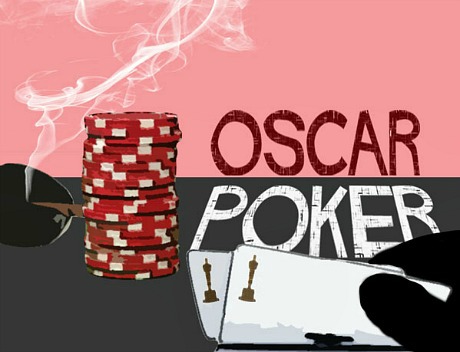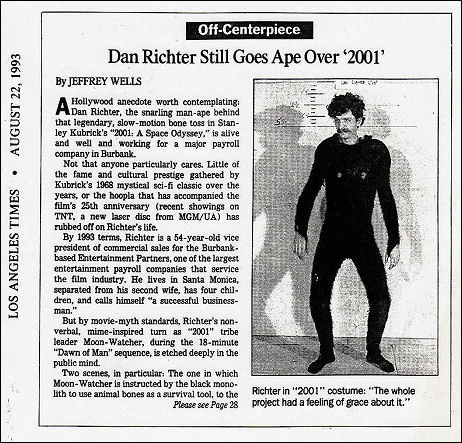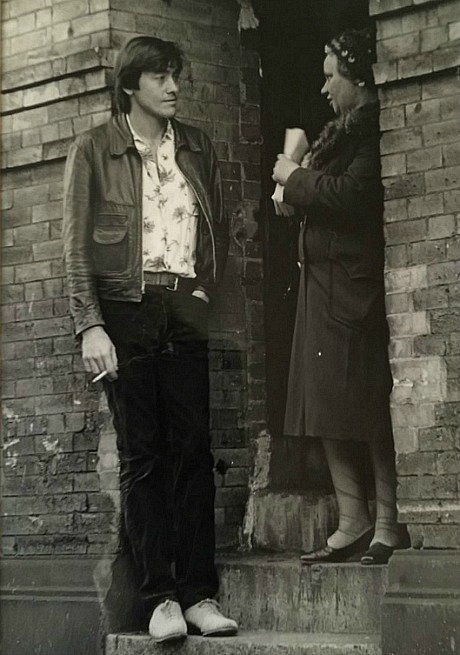168 film critics have voted for what they consider to be the year’s finest film achievements in the 2015 Sight & Sound/BFI poll, and the results are about what you might expect. I partly admire this crew and am partly shaking my head at the ivory-tower-ishness of their choices. No Spotlight, Revenant, Love & Mercy, Brooklyn? The Assassin is their top dog followed by Carol (HE-approved), Mad Max: Fury Road (HE approved), Arabian Nights (what?), Cemetery of Splendor (come again?), No Home Movie (haven’t seen it), 45 Years (HE approved), Son of Saul (totally HE approved), Amy (entirely decent but calm down), Inherent Vice (absolutely not HE approved…hated it), Anomalisa (fine), It Follows (HE approved), Phoenix (still haven’t seen it), Girlhood (haven’t seen it), Hard to Be a God (come again?), Inside Out (good film but calm down), Tangerine (included mostly because it was shot on an iPhone 5), Taxi Tehran (seeing it soon), Horse Money, The Look of Silence, et. al.
Daily
Begins With Anger, Ends With Acceptance
Sasha Stone and I recorded an Oscar Poker chat three or four hours ago. We began by discussing the big, ridiculous Twitter blow-up over my posting of those four horrible words (“Forget women seeing this”) at the end of an otherwise laudatory tweet about The Revenant. I let go with a fair amount of anger about this episode, but at least it’s real. After hashing this out we began discussing Best Picture contenders with a special focus on Creed, Joy and The Hateful Eight. The general assumption is that if the Joy consensus is exuberant seven days hence then the Best Picture Oscar contest will basically be a Joy vs. Spotlight thing with Creed and The Martian duking it out as the populist popcorn favorites. Again, the mp3.

“Even Doper…For People Who Care”
I for one have never seen an Ultra Panavision 70 film projected correctly (i.e., 2.76:1) inside a theatre in my entire life. I saw a restored version of Ben-Hur (which was shot in Camera 65, the exact same process) at the 2011 New York Film Festival, but they showed it within a 2.55:1 aspect ratio. I’m not persuaded that Ultra Panavision 70/Camera 65 flicks that played in the ’50s and ’60s (Raintree County, Ben-Hur, How the West Was Won, Mutiny on the Bounty, It’s a Mad, Mad, Mad, Mad World, The Fall of the Roman Empire, etc.) were shown in 2.76:1. I suspect that they were mostly projected at 2.55:1 except at the Cinerama Dome, which of course was built to project extra-wide Cinerama films. 2.76:1 is really, really wide. I’m familiar with the full-width Ben-Hur and Mutiny on the Bounty only from looking at the DVD/Blurays. So when I see an Ultra-Panavision 70 version of The Hateful Eight early next week, it’ll be my first encounter with this process on a big screen.
Who’s Getting The Elbow?
Nobody deserves the Best Supporting Actor Oscar more than Love & Mercy‘s Paul Dano…nobody. I’m sorry but that’s how it is. At the same time no one is disagreeing that Creed‘s Sylvester Stallone, a late arrival, is all but locked for a BSA nom. Which leaves three slots. By my yardstick they belong to Bridge of Spies‘ Mark Rylance, either Mark Ruffalo or Michael Keaton in Spotlight (does the fact that Emma Stone is hosting a dinner for Keaton on 12.2…does this mean voters will end up voting for him over Ruffalo?), and Michael Shannon in 99 Homes/Freeheld. I agree that Sicario‘s Benicio Del Toro and Beasts of No Nation‘s Idris Elba should be in there, but there are only so many hands in a deck of cards.
Nope, No Thanks, Not Again
A couple of days ago Jennifer Lawrence told EW‘s Sara Vilkomerson that she plans to start directing before long, and that the first project will be “about mental warfare in the ’60s, like an acid experiment gone terribly wrong.” The pic will be based on a 2012 New Yorker article by Raffi Khatchadourian called “Project Delirium.” Lawrence adds that she’d “also like to direct a comedy.” Wells to Lawrence: Do the comedy and shelve the Delirium. Nobody wants to see another government-funded-behavioral-experiment-gone-wrong movie in the wake of Kyle Patrick Alvarez‘s The Stanford Prison Experiment and Michael Almereyda‘s Experimenter. The string is played out.
Richter Was There
Last night I came upon a link for an L.A. Times Calendar piece that I wrote 22 years ago about Dan Richter, the ’60-era mime who played the bone-tossing Moonwatcher in Stanley Kubrick‘s 2001: A Space Odyssey. The last time I linked to this piece was in July ’08. Here are three scans of the original article — #1, #2 and #3.

My father met Dan at a Connecticut AA meeting in ’92 or thereabouts, and at my dad’s suggestion I called a while later and visited Dan at this home in Sierra Madre for an interview. I remember he was dealing with chemotherapy at the time and not walking all that well, but he’s still here and doing okay as far as I know. I didn’t know until this morning that Richter published a 2012 memoir — “The Dream Is Over” — that’s mainly about a four-year period that he spent with John Lennon and Yoko One (’69 to ’73).
Hard and Clear
The best thing about this photo, which was shot somewhere on the Lower West Side during the spring of ’77, are the folds in the woman’s stockings. That and the eye contact between us and my no-worries expression. And the cigarette. I wasn’t a constant smoker (I would guiltily indulge from time to time and then quit again) but I was definitely stinking of tobacco and nicotine when this shot was taken, and it didn’t seem like a problem. I was half-miserable at the time, but I was approaching an even more miserable chapter, which was my first three years in NYC (’78, ’79 and ’80) — restaurant jobs, freelance assignments for next to no money, a cockroach-infested apartment on Sullivan Street and then a one-room misery studio on West 4th Street near Jane, bad food (next to no vegetables, tons of sugar), getting half-bombed every other night, typewriter ribbons and white-out, a ghetto blaster and a couple of dozen cassettes for music. And yet for all the fretting and struggling and my particular form of weltschmerz, I was batting somewhere between .333 and .400 with the ladies.

Last Potential Power-Hitter In Batter’s Box
The time for David O. Russell‘s Joy (20th Century Fox, 12.25) draws nigh. A flurry of press screenings will begin next Wednesday, and there are two showings for the Academy/guild crowd this weekend. It’s obviously presumptuous to talk Best Picture odds, but right now it’s still Spotlight on top with The Revenant having dropped a notch or two, basically because it’s the new 12 Years A Slave. (David Poland: “My personal take is that The Revenant will not resonate much with Academy voters…others disagree.”) If Joy turns out to be a heavy hitter it’ll be a Spotlight-vs.-Joy thing all through December, January and February. I’m persuaded that The Hateful Eight won’t seriously compete, and that Star Wars: The Force Awakens will be a huge financial hit. If there’s a Best Picture sleeper out there it’s Creed, but there’s another formulaic entertainment (i.e., The Martian) in Best Picture contention already — the only Creed contenders that seriously pop are Sylvester Stallone for Best Supporting Actor and composer Ludwig Goransson.
Same Cockatoo Thanksgiving
Repeat/collage/refining of previous turkey-day sentiments: “I don’t feel an obligation to state what I’m thankful for because the calendar says this is the day to put your feelings on the table. I feel thankful 24/7/365. Mainly for my life and career having turned out fairly well. The success of Hollywood Elsewhere has been earned brick by brick, phrase by phrase, sweat droplet by sweat droplet. The talent and discipline that made this happen weren’t granted except by way of genetic inheritance, but I’m enough of a meditative mystic to understand that luck is a big part of things, and so I’m grateful, very grateful, for the luck that has come my way. And for my two sons and my friends and occasional romantic flames and my two cats, and the feeling of being loved or liked or aligning with others in whatever way. I’m hugely grateful that I wasn’t born to a middle-class, downmarket family in Nebraska or Montana or to some resigned, lethargic, drinking-class environment. I’m thankful that sobriety is now the basis of my life, and that I don’t eat turkey or mashed potatoes or yams or sweet potatoes or any orange-colored vegetable. I love Thanksgiving downshifting because it means a major Bluray and high-def submission for a day. Except I haven’t gotten around to that.”
Stalking Horse
Will Smith to The Hollywood Reporter‘s Scott Feinberg: “As I look at the political landscape, I think that there might be a future out there for me. They might need me out there. This is the first year that I’ve been incensed to a level that I can’t sleep, you know? So I’m feeling that at some point, in the near future, I will have to lend my voice to the conversation in a somewhat different way.” Of course, Smith doesn’t expend so much as a single breath explaining what precisely has “incensed” him so much. Donald Trump? Police shootings of black detainees? He’d rather not say, but he’d like go into politics and may run for something because “they might need me”? Smith has never been a wonky, details-driven guy — he’s always relied on charm. But if he decided to get wonky and serious….naahh, a leopard can’t change spots.
Ugliest Americans
“When Donald Trump said he would bring back waterboarding as an interrogation tactic against terrorism suspects, and added, ‘If it doesn’t work, they deserve it anyway,’ an older couple behind the group of teenagers threw back their heads in utter delight. ‘Amen,’ the woman said. ‘Oh, my God,’ one of the high school girls said. Another covered her mouth in shock.
“Then, when Mr. Trump began talking about surveillance of refugees, the college-age couple standing in front of the students began chanting, ‘Hating Muslims helps ISIS!’ The students were caught off guard, but after a moment of uncertainty, some of them joined in.
“Steven Hopkins [of Waverly, Ohio] leaned over and screamed, ‘Shut up!’
“Mr. Trump stopped his remarks and looked toward the commotion with disgust. ‘Two people, two people,’ he said dismissively of the couple, as the crowd started booing and the people around them began shouting. ‘So sad,’ Mr. Trump said. ‘Yeah, you can get ’em the hell out.’
